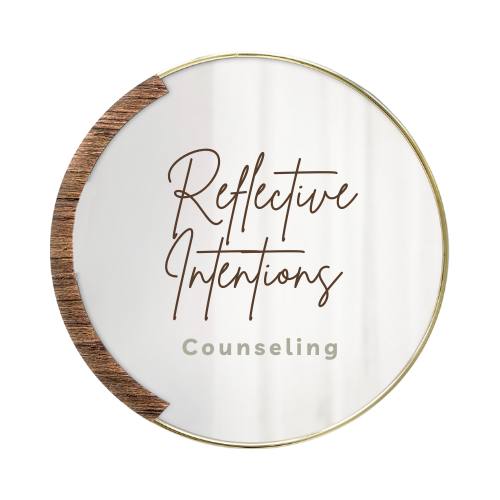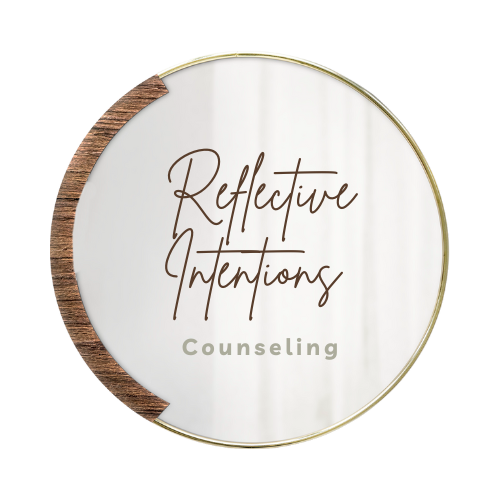Attachment and Relationships
Relationships are necessary. If you think otherwise, it is probably because relationships have disappointed you. I am so sorry that people have not known how to care about what you need. Attachment can be a beautiful thing or a painful one.
Let's talk about the types of attachment first and foremost:
There's the holy grail right, the one everyone wants or wants to think they have: Secure attachment. I tell my clients that we will appreciate a secure attachment with others if we learn to attach to ourselves first. What do I mean by that? When securely attached to yourself, you can maintain your individuality in any relationship you are in. Securely attaching to yourself means you can enter a space and not feel like you must make yourself smaller to fit that space. You are unapologetically a healthy version of yourself, knowing full well that growth is a continuous process, that not all feedback is a form of criticism, not everyone is your cup of tea, and that you are not going to be theirs. Guess what? That is OKAY.
Now that you learned some truths about how you can be awesomely you, let's talk about other forms of attachment...the insecure forms. (cue dramatic music). Insure attachment styles are common in a society such as ours because this society values overworking ourselves for the sake of others.
We cannot hope to heal ourselves if we don't have the time to do it. I want to preface the following points by saying that you are still worthy of love even if you haven't figured out how to love yourself fully. This idea of "if you can't be by yourself, you shouldn't be with someone else" is horsepoop. Should you try to be your best self if you are entertaining the idea of being in a relationship- of course. You don't want to bleed on someone who hasn't cut you.
But having a sense of community, connection, and positive relationships is ESSENTIAL to healing.
Without further ado, I introduce you to insecure attachment issues:
Anxious: an anxiously attached person has difficulty trusting the relationship and their partner. Working with anxiously attached individuals, I notice that their anxiety can come from a partner's actions. Still, often it comes from this deeply rooted idea that they are "unlovable." I don't know who told you that to receive and be deserving of love, you must sacrifice yourself to be what the other person wants you to be, but it is a myth. This a myth I am happily willing to debunk because you deserve love even if you want to say "no" to someone you love. If they threaten to leave you, it's not your thing; that's their issue. Anxiety is not a feeling; it's an experience. Usually, one that is brought about by NOT feeling our emotions. Constantly putting ourselves on the back burner to put others first is not sustainable.
Avoidant: Oh boy, avoidants don't nearly get the amount of attention or consideration as anxiously attached folks because, in their essence, they come across as aloof and not needing support. This is a farce; it's a mask, a façade. I can tell you because I am a recovering, avoidantly attached person. In our mind, we hold deeply rooted beliefs that the relationship will not meet our needs because we have also already resolved ourselves to believe that we are unlovable but for different reasons than our anxious counterparts. Avoidantly attached persons often feel unsafe sharing their emotions or even having needs, so they don't bother to be emotionally available. Why do that if we're going to be let down anyway, right?
Listen, I understand, really- I thought that way too. Here's the thing: we can only make connections if we make room for them, my friends.
Disorganized: This is a combination of the two. A disorganized, attached person often engages in this dance between anxious and avoidant. The person will generally engage in an avoidant style when they feel they are being "too vulnerable" and immediately try to engage their partner or other people when they think that that person is pulling away, triggering the anxious attachment. It can feel like a game of cat and mouse and can send inconsistent messages to partners. Disorganized, attached folks are prone to being in relationships with high-conflict individuals who may match their high-conflict way of relating to others.
The good news is that it's a significant first step towards healing your attachment style when you start bringing awareness to how you relate to others. I know you don't like how this feels, and that's probably why you found this post. I named my practice Reflective Intentions Counseling, LLC because I firmly believe and have seen that to cultivate change, you must first reflect on what needs to be changed and then be intentional about that change. Without reflection and intention, change is just a dream.
Stay intentional, everyone!

